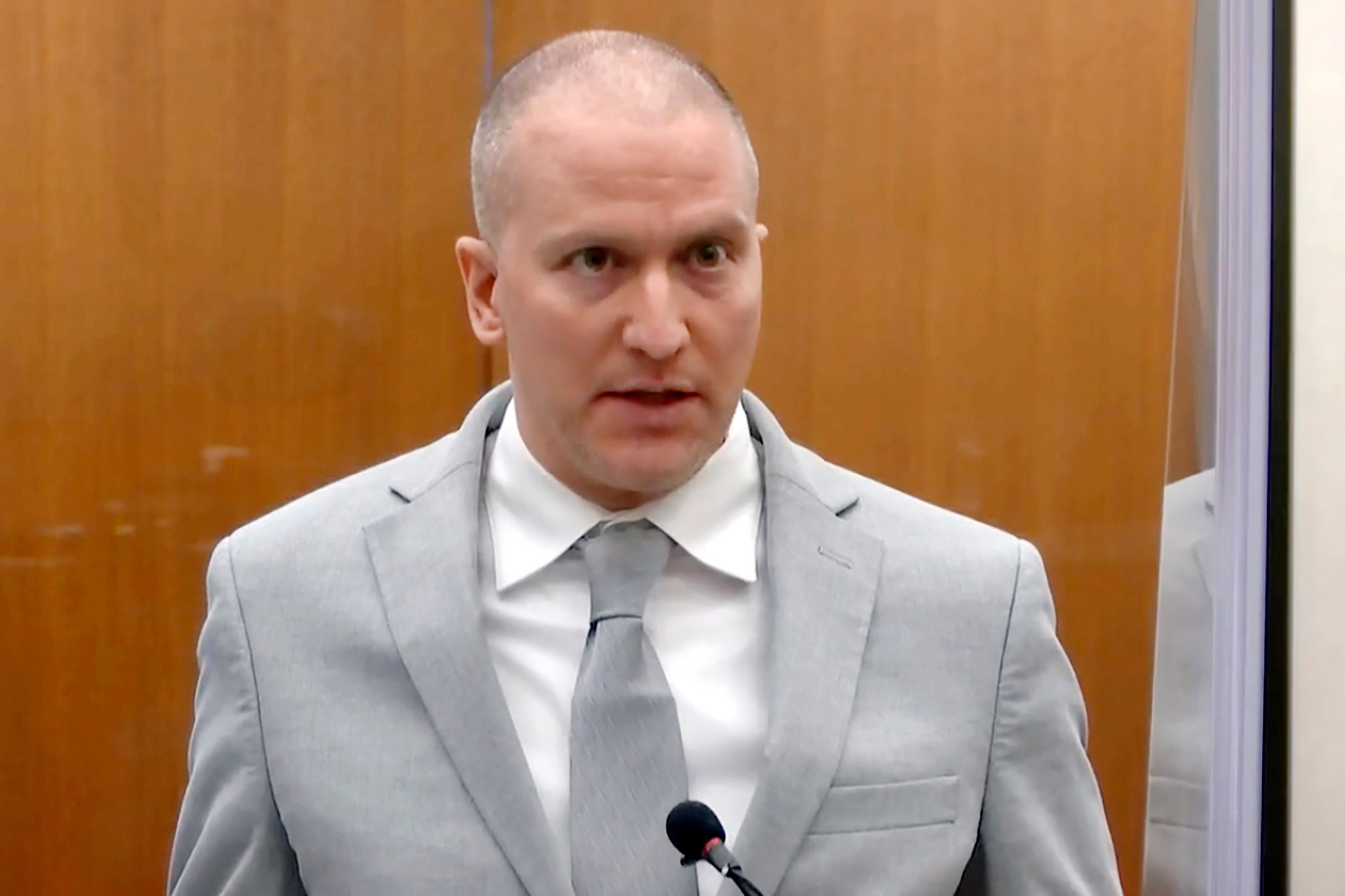Don’t be surprised by Derek Chauvin’s insulting message to George Floyd’s children
The former police officer said he wished Floyd’s children ‘all the best’ as he was transferred to a likely much cushier federal facility this week


Your support helps us to tell the story
From reproductive rights to climate change to Big Tech, The Independent is on the ground when the story is developing. Whether it's investigating the financials of Elon Musk's pro-Trump PAC or producing our latest documentary, 'The A Word', which shines a light on the American women fighting for reproductive rights, we know how important it is to parse out the facts from the messaging.
At such a critical moment in US history, we need reporters on the ground. Your donation allows us to keep sending journalists to speak to both sides of the story.
The Independent is trusted by Americans across the entire political spectrum. And unlike many other quality news outlets, we choose not to lock Americans out of our reporting and analysis with paywalls. We believe quality journalism should be available to everyone, paid for by those who can afford it.
Your support makes all the difference.George Floyd changed America. The very fabric of American society was altered in nine minutes and 29 seconds, by the protests that followed, and by the division it caused between those who believe that Black lives matter and those who believe “blue” lives do instead. Floyd never meant to be a martyr, but unfortunately, he became one.
Some feel as if Floyd and his family received justice when Derek Chauvin was sentenced to 22 years for the murder of Floyd — after all, when cops commit acts of violence against people of color, they’re hardly ever held accountable. Take a look at the police officers who killed Breonna Taylor for proof of that. But as Chauvin was given a 20-year federal sentence for violating Floyd’s civil rights this week — one that will run concurrently with his 22-year state conviction for on-duty murder — he didn’t apologize. And while some of America is feigning shock at that lack of apology, I’m not surprised. Why would Chauvin be sorry? He made his thoughts clear the second he filed an appeal to overturn his murder conviction. What about that action indicates remorse?
Chauvin wished Floyd’s children a flippant-seeming “all the best” as he was transferred to federal prison this week after being convicted of the federal crime (he will now likely swap solitary confinement in a state prison for a lower-security, cushier federal facility). But he has taken the best from them, and refuses to apologize for it. And his 22 years in prison will not bring their father back; it will not give them a Father’s Day by Floyd’s side rather than by his tombstone.
Insultingly, Chauvin added that he hopes Floyd’s children “have excellent guidance in becoming great adults” before he was taken away.
A culture of violence, especially violence against Black people, proliferates in American police academies. Michigan police were recently forced to apologize and conduct a review after they were found to use images of Black men for target practice; elsewhere, officers were caught mocking the death of Elijah McClain as if it were a joke; and New York City cops were highly criticized for selling fundraising coins with the image of a Black man being hunted on them. Even Minneapolis police — police working where Chauvin was previously employed — were found to have “engaged in a pattern of racism” in their policing. How many examples of concerning, racist rhetoric in American policing have yet to, or may never, come to light?
One individual did not kill George Floyd; systemic racism in policing did. Black people are killed by police at disproportionate rates, are more likely to be subjected to traffic stops and searches, and are more likely to face more severe charges or longer sentences for the same charges as their white counterparts. Racism courses through the veins of policing, so much so that the statement “Black Lives Matter”, alongside requests to look at the way police treat Black people, was enough to spur that “blue lives matter” counter-movement. But, as many cops and cop supporters fail to realize, there are no blue lives. A cop can remove his or her uniform if they feel it makes them a target of violence, but Black people can’t remove our skin.
We, as a nation, have failed George Floyd, Eric Garner, Breonna Taylor, Tamir Rice, and so many other Black people who’ve been killed at the hands of the police by expecting change to come from the systems that harm us. How can we expect justice from the American legal system when judges have been proven to give harsher sentences to darker skinned people? Even in juvenile cases, Black boys are more likely to be charged as adults than their white peers.
Why would Chauvin apologize when every institution, from those committing the arrests to those doling out the sentences, also slowly crushes the life out of Black people? While Chauvin’s knee may no longer be on Floyd’s neck, the knee of a culture that sees us as threats remains on the neck of every Black person in America. And we still can’t breathe easy when those who should protect and serve us continue to oppress us.